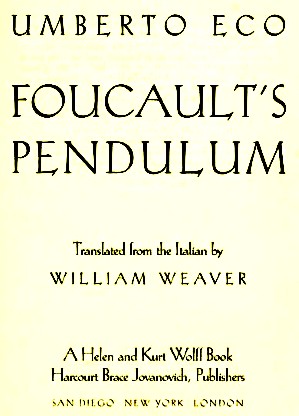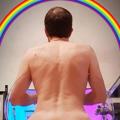🌈 Barbapulpe 😇 ᴮᵒᵒᵏᵂʸʳᵐ reviewed Le Pendule de Foucault by Umberto Eco
Esotérisme romanesque
5 stars
Par l'auteur du célèbre Nom de la Rose, voici un roman d'aventures passionnant.
Umberto Eco aborde avec sa grande érudition les sociétés secrètes, l'occultisme et l'ésotérisme, et en arrive presque à faire croire au lecteur l'existence de ce complot mondial qui traverse l'Histoire. Se déroule une aventure fascinante, façon thriller, qui n'est pas sans rappeler le Da Vinci Code qu'il précéda et probablement inspira.
On le lira avec d'autant plus de profit qu'on porte un intérêt à ces thèmes et que l'on possède des connaissances historiques, car les références sont nombreuses, à la limite de l'étalage voire de la pédanterie si l'on n'est pas versé dans ces sujets.
Pour ma part j'ai beaucoup aimé et cela fait partie des livres qui m'ont le plus marqués. Et finalement, vu ce qu'il se passe aujourd'hui dans notre monde, si tout cela était vrai...?



